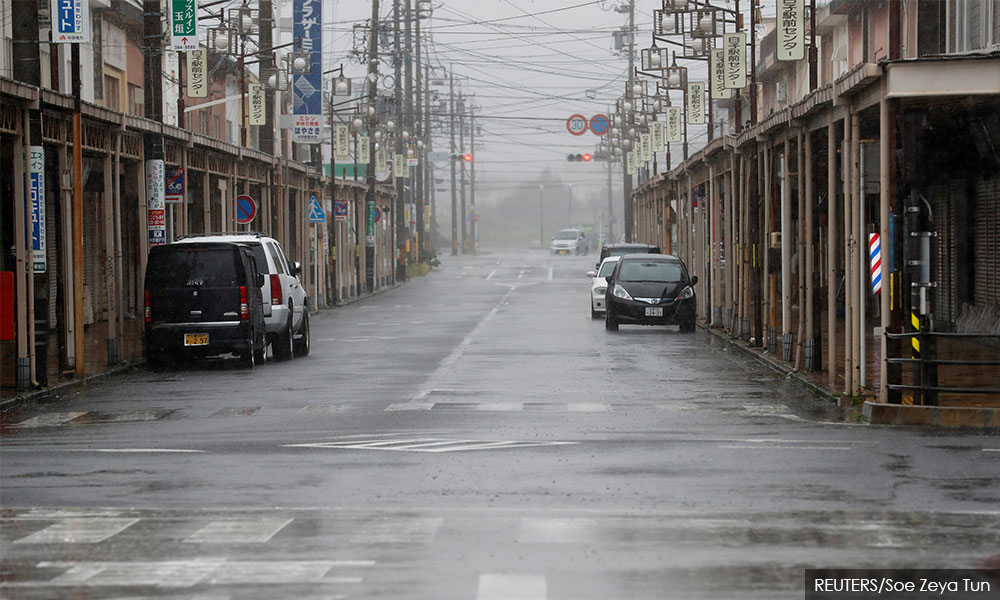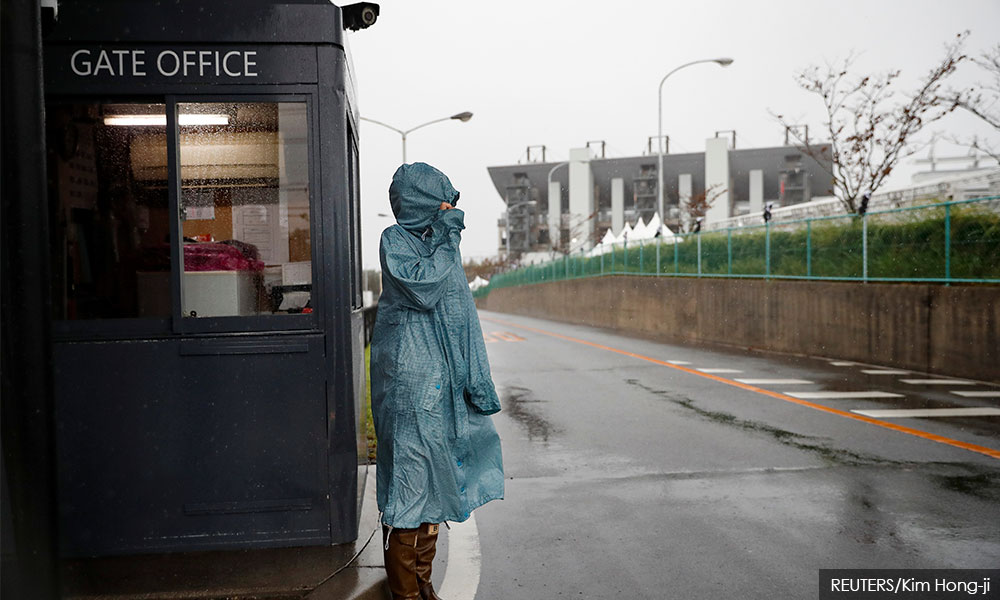Four dead, 17 missing as powerful Typhoon Hagibis hits Japan

Four people were killed and 17 were missing after the most powerful typhoon to hit Japan in decades paralysed Tokyo, flooding rivers and putting millions under evacuation warning before ploughing up the northeastern coast.
Authorities lifted rain and flood warnings for the Kanto region around a becalmed Tokyo before dawn, and by today morning were starting to lift them on areas further north.
Typhoon Hagibis was expected to head out to sea today evening once it churned its way up the northeastern coast and the northern island of Hokkaido.
Four people died in Chiba, Gunma, Kanagawa and Fukushima prefectures surrounding Tokyo, public broadcaster NHK said. Among them was a man in his 60s who was found with no vital signs in a flooded apartment in Kawasaki, NHK said. Seventeen were missing early today, it said.
In Fukushima, Tokyo Electric Power Co reported irregular readings from sensors monitoring water in its Fukushima Daiichi nuclear plant overnight. The plant was crippled by a 2011 earthquake and tsunami.
In parts of Fukushima and Nagano prefectures, heavy rain caused rivers to flood their banks, submerging houses and rice paddies and forcing some people to climb onto their roofs for safety.
Houses along the Chikuma River in Nagano were nearly underwater and at least one person was rescued from the roof of a house by helicopter, NHK said. Part of a road was swept away in the flooding.
Authorities issued evacuation advisories and orders for more than six million people across Japan as the storm unleashed the heaviest rain and winds in years. Some 100 injuries have been reported so far, while more than 270,000 households lost power, NHK said.
The storm, which the government said could be the strongest to hit Tokyo since 1958, brought record-breaking rainfall in many areas, including the popular resort town of Hakone, which was hit with 939.5mm of rain over 24 hours.
Hagibis, which means “speed” in the Philippine language Tagalog, made landfall on Japan’s main island of Honshu yesterday evening. A magnitude 5.7 earthquake shook Tokyo shortly after.
Major shinkansen bullet trains from Tokyo would begin on schedule today, NHK said, while the Tokyo subway system was also operating.

One expert, Nobuyuki Tsuchiya, director of the Japan Riverfront Research Center, had earlier told Reuters that further flooding could occur as several surrounding prefectures began releasing water from dams, letting it flow downstream.
About 1.5 million people in Tokyo live below sea level.
The Japan Meteorological Agency issued the highest alert level for 12 prefectures, warning of the potential for once in decades rain totals. It lifted the alerts early today.
Just last month, another strong storm, Typhoon Faxai, destroyed or damaged 30,000 houses in Chiba, east of Tokyo, and caused extensive power outages.
The capital’s main airports, Haneda and Narita, stopped flights from landing and connecting trains were suspended, forcing the cancellation of more than a thousand flights.
Many people in and around Tokyo took shelter in temporary evacuation facilities early, before the worst of the storm arrived.
Yuka Ikemura, a 24-year-old nursery school teacher, was in one such facility at a community centre in eastern Tokyo with her three-year-old son, eight-month-old daughter and their pet rabbit.
She said she decided to move before it was too late.
“I’ve got small children to take care of and we live on the first floor of an old apartment,” Ikemura told Reuters.
“We brought with us the bare necessities. I’m scared to think about when we will have run out diapers and milk.”
The Rugby World Cup match between Namibia and Canada today in Kamaishi was cancelled. Two matches were cancelled yesterday.
Formula One Grand Prix organisers had cancelled all practice and qualifying sessions scheduled for yesterday.
- Reuters
✍ Credit given to the original owner of this post : ☕ Malaysians Must Know the TRUTH
🌐 Hit This Link To Find Out More On Their Articles...🏄🏻♀️ Enjoy Surfing!



















Post a Comment